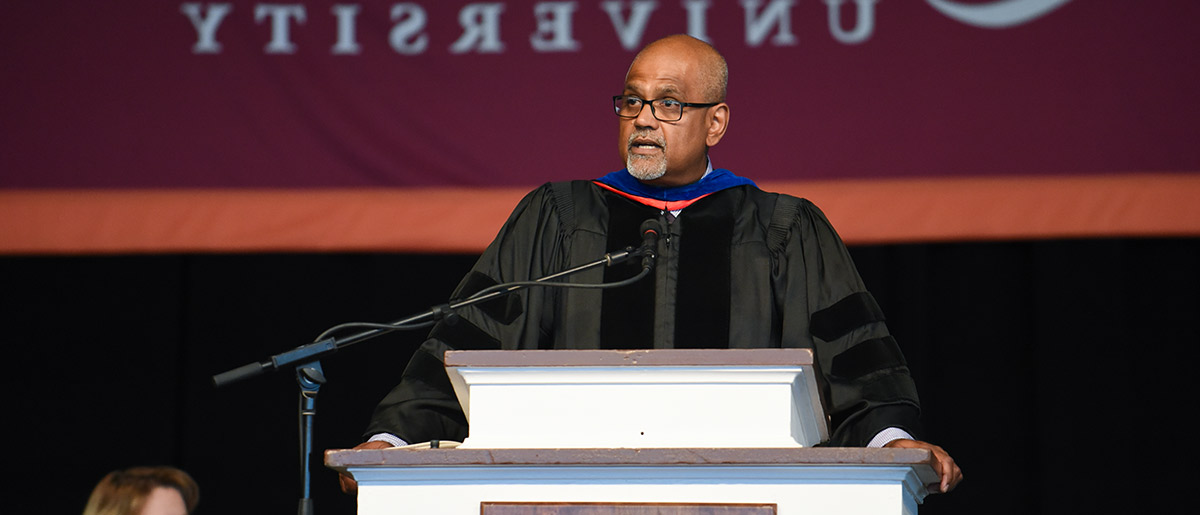Self-Study for Reaccreditation Design
The Self-Study design was developed by the Steering Committee with input from the University President and Provost. For the self-study process to be fully implemented, the design was approved by the institution’s MSCHE liaison Dr. Anne Wahl in summer 2022.
The Self-Study design is a “map” that guides the institution through the Self-Study process; it outlines what questions the institution wants to answer, how it will conduct the process, and identifies faculty, staff and students involved in the process.
Self-Study Priorities and Outcomes
In alignment with the institution’s mission, guiding values and strategic plan, which were developed with input from faculty, staff, students and the board, Susquehanna University identified four institutional priorities and outcomes to focus the Self-Study. The institutional priorities and intended outcomes framing the study were defined then shared with University leadership for final approval.
Institutional Priorities
- To develop and strengthen policies and initiatives that promote higher rates of student retention and persistence to graduation.
- To cultivate a more equitable and inclusive climate and to recruit, retain, and support a more diverse student body, faculty, and staff population.
- To promote curricular innovation that prepares students for personal and professional success and is rooted in our core liberal arts mission.
- To identify and pursue programs and initiatives that promote the institution’s educational mission within the broader local, regional, national, and international communities that secure the institution’s long-term financial outlook
Intended Outcomes
Susquehanna has engaged in a continuous process of self-study and review over the last five years, including the Strategic Planning Process, the CenSUs efforts focused on diversity, inclusion, and equity on campus, SU 2.0 focused on the academic and administrative structures, and the Market Disruptions committee. These efforts have identified several strategic initiatives and goals that will structure the self-study process. Based on this work and the overarching objectives of the self-study process, the Steering Committee has identified the following intended outcomes.
- Engage the institutional community in an inclusive and transparent self-appraisal process that actively and deliberately seeks to involve members from all areas of the institutional community.
- Identify, collect, and analyze data related to the self-study, identify strengths and gaps in Susquehanna’s ability to meet the institutional mission, and provide actionable recommendations across the seven standards.
- Articulate overarching institutional objectives based on the different strategic planning initiatives that have taken place over the last few years.
- Demonstrate how the institution currently meets the Commission’s Standards for Accreditation and Requirements of Affiliation.
- Focus on continuous improvement in the attainment of the institution’s mission and its institutional priorities.
Compliance Verifications
An institution of higher education is a community dedicated to students, to the pursuit and dissemination of knowledge, to the study and clarification of values, and to the advancement of the society it serves.
Through reaccreditation, the Middle States Commission on Higher Education mandates that its member institutions meet rigorous and comprehensive standards and verifies institutional compliance with accreditation-relevant federal regulations developed by the U.S. Department of Education at the time of self-study evaluation. In meeting the quality standards of MSCHE accreditation, institutions earn accredited status, and this permits them to state with confidence: “Our students are well-served; society is well-served.”
The Commission requires verification of institutional compliance in the following areas:
- Student identity verification in distance and correspondence education
- Transfer of credit policies and articulation agreements
- Title IV program responsibilities
- Institutional record of student complaints
- Information required for students and the public
- Standing with Pennsylvania and other accrediting agencies
- Written arrangements
- Assignment of credit hours
